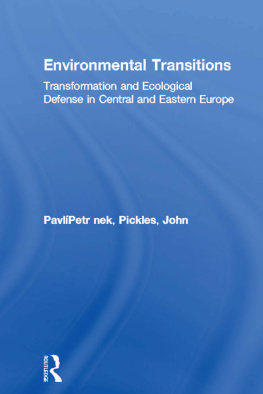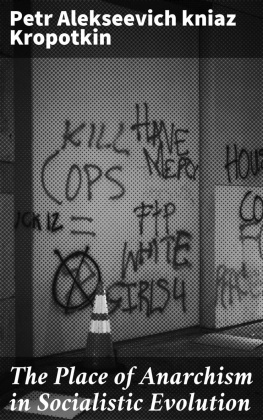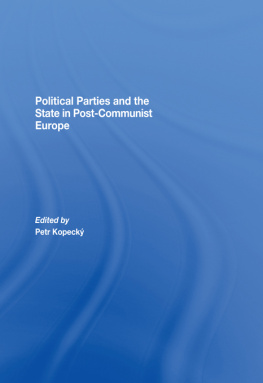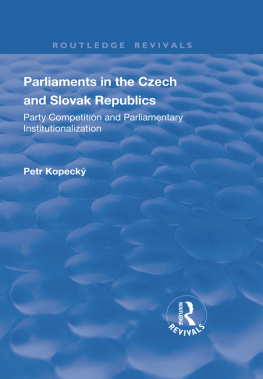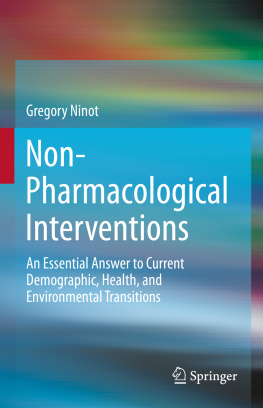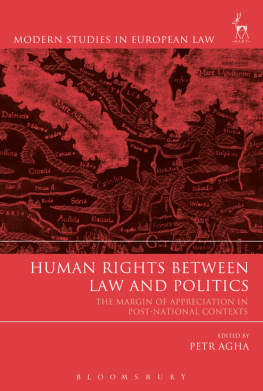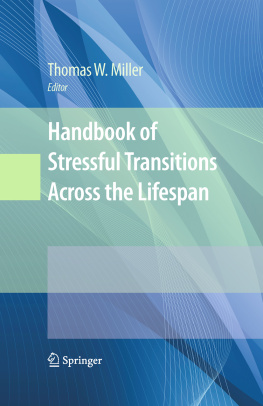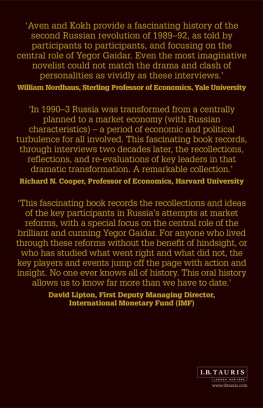Pavlínek Petr - Environmental Transitions
Here you can read online Pavlínek Petr - Environmental Transitions full text of the book (entire story) in english for free. Download pdf and epub, get meaning, cover and reviews about this ebook. publisher: Taylor & Francis Group, genre: Politics. Description of the work, (preface) as well as reviews are available. Best literature library LitArk.com created for fans of good reading and offers a wide selection of genres:
Romance novel
Science fiction
Adventure
Detective
Science
History
Home and family
Prose
Art
Politics
Computer
Non-fiction
Religion
Business
Children
Humor
Choose a favorite category and find really read worthwhile books. Enjoy immersion in the world of imagination, feel the emotions of the characters or learn something new for yourself, make an fascinating discovery.
- Book:Environmental Transitions
- Author:
- Publisher:Taylor & Francis Group
- Genre:
- Rating:4 / 5
- Favourites:Add to favourites
- Your mark:
- 80
- 1
- 2
- 3
- 4
- 5
Environmental Transitions: summary, description and annotation
We offer to read an annotation, description, summary or preface (depends on what the author of the book "Environmental Transitions" wrote himself). If you haven't found the necessary information about the book — write in the comments, we will try to find it.
Environmental Transitions — read online for free the complete book (whole text) full work
Below is the text of the book, divided by pages. System saving the place of the last page read, allows you to conveniently read the book "Environmental Transitions" online for free, without having to search again every time where you left off. Put a bookmark, and you can go to the page where you finished reading at any time.
Font size:
Interval:
Bookmark:

Environmental Transitions is a detailed and comprehensive account of the environmental changes in Central and Eastern Europe, both under state socialism and during the transition to capitalism. The change in politics in the late 1980s and early 1990s allowed an opportunity for a rapid environmental clean up in an area once considered one of the most environmentally devastated regions on earth. The book ilustrates how transformations after 1989 have brought major environmental improvements, as well as new environmental problems. It shows how environmental policy, economic change and popular support for environmental movements have specific and changing geographies associated with them.
Environmental Transitions addresses a large number of topics, including a historico-geographical analysis of environmental change, health impacts of environmental degradation, the role of environmental issues during the anti-communist revolutions, legislative reform and the effects of transition on environmental quality after 1989.
Environmental Transitions contains detailed case studies from the region, which illustrate the complexity of environmental issues and their intimate relationship with political and economic realities. It gives theoretically informed ideas for understanding environmental change in the context of the political economy of state socialism and post-communist transformations, drawing on a wide body of literature from West, Central and Eastern Europe.
Petr Pavlnek is Associate Professor of Geography at the University of Nebraska at Omaha. He is the author of Economic Restructuring and Local Environmental Management in the Czech Republic (Edwin Mellen Press 1997).
John Pickles is Professor of Geography and member of the Committee on Social Theory at the University of Kentucky. He has recently published Theorizing Transition: The Political Economy of Post-Communist Transformations, edited with Adrian Smith (Routledge 1998) and Bulgaria in Transition: Environmental Consequences of Political and Economic Transformation, edited with Krassimira Paskaleva, Philip Shapira and Boian Koulov (Ashgate 1998).
Transformation and ecological defence in Central and Eastern Europe
Petr Pavlnek and John Pickles

First published 2000
by Routledge
11 New Fetter Lane, London EC4P 4EE
Routledge is an imprint of the Taylor & Francis Group
This edition published in the Taylor & Francis e-Library, 2005.
To purchase your own copy of this or any of Taylor & Francis or Routledges collection of thousands of eBooks please go to www.eBookstore.tandf.co.uk.
2000 Petr Pavlnek and John Pickles
The right of Petr Pavlnek and John Pickles to be identified as the Authors of this Work has been asserted by them in accordance with the Copyright, Designs and Patents Act 1988
All rights reserved. No part of this book may be reprinted or reproduced or utilised in any form or by any electronic, mechanical, or other means, now known or hereafter invented, including photocopying and recording, or in any information storage or retrieval system, without permission in writing from the publishers.
British Library Cataloguing in Publication Data
A catalogue record for this book is available
from the British Library.
Library of Congress Cataloging in Publication Data
Pavlnek, Petr, 1963
Environmental transitions: transformation and ecological defence in
Central and Eastern Europe/Petr Pavlnek and John Pickles
384 pp. 15.623.4 cm
Includes bibliographical references and index.
1. Environmental policyEurope, Eastern. 2. Europe, Eastern
economic policy19893. Post communismEurope, Eastern. I. Pickles,
J. (John)II Title.
IIC244Z9E557 2000
333.7'0947dc 21 99059082
ISBN 0-203-44492-2 Master e-book ISBN
ISBN 0-203-75316-X (Adobe eReader Format)
ISBN 0-415-16268-8 (hbk)
ISBN 0-415-16269-6 (pbk)
May they always temper desire with compassion and ambition with justice.
May they live to see a cleaner and better world.
| 10.13 | Annual emissions from Czech Energy Works power plants, 1991-9 |
In the early 1990s, while at the University of Kentucky, we each began our formal engagement with the study of the political economy of social and environmental change in Central and Eastern Europe (CEE). One of us was a young (but aging) socialist from a working-class background and region of the North of England, steeped in the traditions and oppositions of Cold War geopolitics, grown politically and intellectually through the study of and engagement with the black consciousness and anti-apartheid struggles in South Africa, who completed doctoral and post-doctoral studies in the USA under Reagan and Bush. The other of us was a still young anti-communist from a working-class background and region of Eastern Bohemia in Czechoslovakia, forcibly steeped in the bureaucracies and ideological training of state socialist Mittel-Europa, grown of age politically in the Velvet Revolution in Prague, and steeled in Anglo-American traditions of political economy and regional development in America under Clinton and Gingrich.
The transformations wrought by the events of 1989 were viewed by each of us vicariously as scholars working in critical geographical studies at the University of Kentucky and directly in various research sites in Central and Eastern Europe during that time. At each point we have been suspicious of the rhetoric of transition (and the triumphalism and neo-imperialism the term connotes). Instead, we have been drawn to alternative readings and renderings of the multiple processes of transformation that the term transition hides. At each turn we have tried to ask how actually existing actors have struggled to comprehend and build particular environmental practices and futures. In this endeavor we have each benefitted from exchanges with many colleagues.
Colleagues at the University of Kentucky have provided a supportive environment for critical studies and have contributed directly and indirectly to our thinking in many ways. Among them are Keiron Bailey, Dwight Billings, Martin Bosman, Stan Brunn, Larry Burmeister, Barbara Cellarius, Carl Dahlman, Michael Dorn, Oliver Froehling, John Paul Jones, Mark Klar, Jennifer Kopf, Tom Leinbach, Peter Little, Eugene McCann, Matt McCourt, Patrick Mooney, Wolfgang Natter, Mohameden Ould-Mey, Jeff Popke, Karl Raitz, Herb Reid, Susan Roberts, Rich Schein, Chad Staddon, Karen Tice, Dick Ulack, and Ernest Yanarella.
We are fortunate over the years to have benefitted from discussion and collaboration with several scholars and institutions in CEE. In the Czech Republic Ji Blaek, Michal Illner, Jan Kra, Zdenk Kukal, Ludk Skora, and Jan Vozb, in Slovakia Mikul Huba, and in Poland Katarzyna Klich and Tomasz ylicz have helped along the way. In Hungary Sandor and Judit Peter have been engaged in parallel work on the economic and legal contexts of environmental reforms, and have been both colleagues and friends in this endeavor. In Bulgaria colleagues at the Institute of Geography at the Bulgarian Academy of Sciences and the Department of Geography at Sofia University have given unselfishly of their time and understanding, and also have become friends. In particular, we owe a debt of gratitude to Assen Assenov, Mariana Assenova, Roumiana Dobrinova, Christo Ganev, Zoya Mateeva, Didi Mikhova, Mariana Nikolova, Peter Petrov, Anton Popov, Poli Roukova, Vassil Vassilev, and Stefan Velev. Apostol Apostolov, Mitko Dobrev, Ivan Marev, and Simeon Simeonov were kind enough to share information, data, and insights into their work on environmental and agrarian change, and we are grateful. Staff of the Regional Environmental Center in Budapest and its regional center in Sofia provided useful materials and insight. In Germany Gnther Taege introduced us to the Tagebau south of Leipzig.
Font size:
Interval:
Bookmark:
Similar books «Environmental Transitions»
Look at similar books to Environmental Transitions. We have selected literature similar in name and meaning in the hope of providing readers with more options to find new, interesting, not yet read works.
Discussion, reviews of the book Environmental Transitions and just readers' own opinions. Leave your comments, write what you think about the work, its meaning or the main characters. Specify what exactly you liked and what you didn't like, and why you think so.

